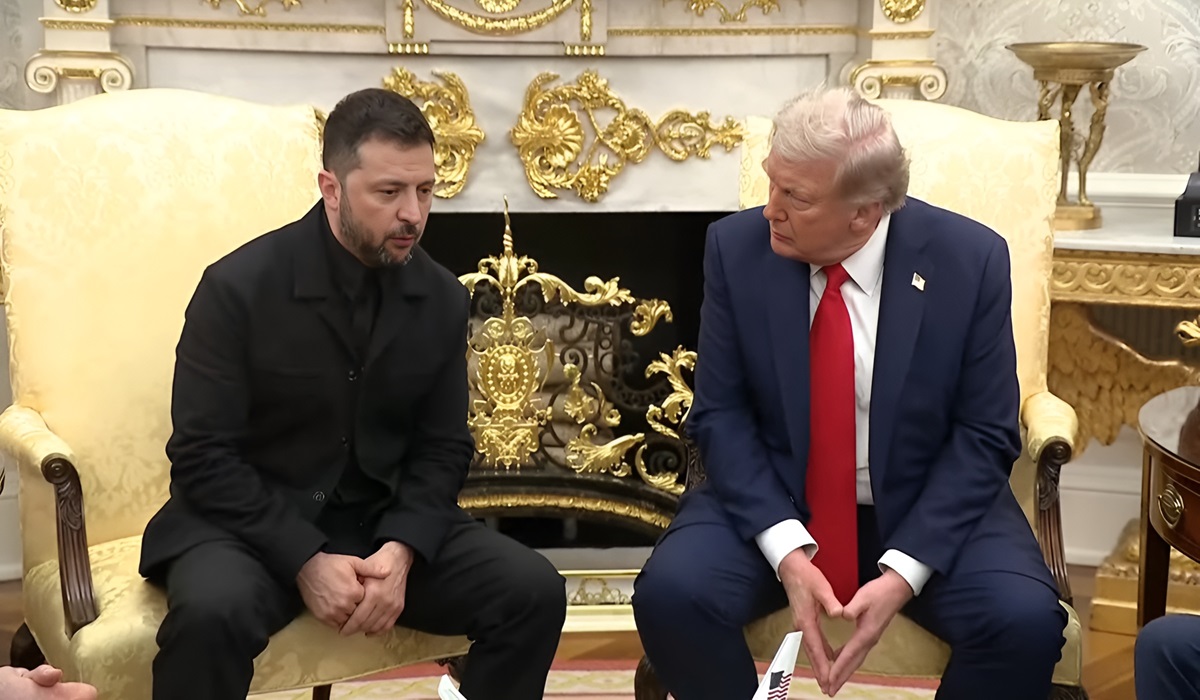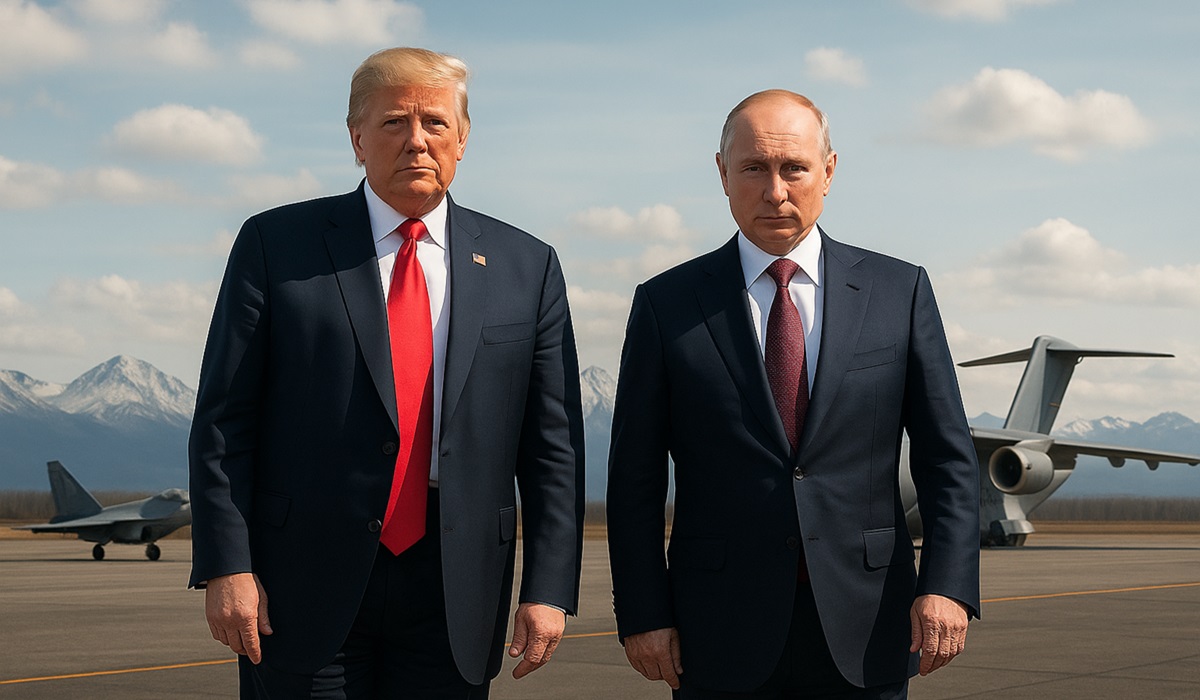War by Design: Iran, Israel, and the Dangerous Illusion of American Restraint
- TDS News
- Breaking News
- June 15, 2025

The world sits on a knife’s edge once again. In the latest flashpoint in the long-brewing regional tinderbox, Israel has launched a preemptive military strike deep into Iranian territory. The justification, as stated by Israeli officials, was to eliminate what they claim to be Iran’s future “nuclear deterrent capabilities.” But what makes this round of violence uniquely volatile is not just the strike itself — it’s the dangerous expectation that Iran, a sovereign nation, should simply take the hit and “turn the other cheek.”
Let’s be clear: Israel did not merely hit hardened military targets. The strikes killed scores of civilians, struck public infrastructure, and deepened regional resentment. And in an astonishingly arrogant move, Israel followed up with a message warning Iran not to retaliate — as though international law functions only when convenient for those in power. This is the theater of absurdity we’re living in. It’s not law; it’s lawlessness with diplomatic gloss.
The situation lays bare the complete erosion of faith in “international law,” which, frankly, has become an empty shell. For decades, nations like the U.S. and Israel have violated the sovereignty of other nations with little to no consequences. International law only seems to exist to police the weak — not to hold powerful actors accountable. When Israel strikes a sovereign country unprovoked and then dares to suggest that retaliation would be “unacceptable,” it becomes clear: might makes right — at least in the eyes of the global power elite.
Yet the question that now looms larger than ever: how truthful is President Trump and the U.S. administration’s claim that they had “no involvement” in Israel’s strike?
Let’s break this down without the veil of politeness. The United States has been the chief financier, weapons supplier, intelligence partner, and political shield of Israel for decades. The missile systems Israel uses — often built with U.S. funding — include the THAAD (Terminal High Altitude Area Defense) systems that are operated and overseen by American military personnel. American warships have intercepted incoming fire on Israel’s behalf. Satellites, intelligence gathering, surveillance, and cyber infrastructure — all propped up by the Pentagon and the sprawling U.S. intelligence-industrial complex — actively bolster Israeli defense and offensive capabilities.
So how are we to believe that the U.S. had no knowledge or complicity in the strike on Iran? Especially when, on April 11th, President Trump publicly declared that Iran had exactly 60 days to agree to a nuclear deal with Israel — “or else.” Exactly 60 days later, Israel struck. That timing is no coincidence. That’s coordination.
Israeli Prime Minister Benjamin Netanyahu has for years pushed the United States to enter open conflict with Iran. This strike is nothing short of bait — and he knows full well that if Iran retaliates hard enough, the U.S. might be drawn in. That’s what he wants: an American-led war against Iran. And while Netanyahu cloaks himself in the language of “defense,” his strategy is offense — plain and simple.
But this time, the geopolitical landscape is different. Iran is not isolated. It has deep ties with Russia, China, Iraq, and much of the Arab world — even across Sunni-Shia divides. Its agricultural exports sustain large parts of the region. And its military capabilities, including precision missiles, cyber warfare units, and growing drone technology, are more advanced than many in the West are willing to admit.
Israel is now engaged on multiple fronts: Gaza, Lebanon, Syria, Iraq, and now Iran. In U.S. military doctrine, fighting a war on even two fronts is considered deeply unwise — bordering on unwinnable. Yet Israel, emboldened by its U.S. backing and unchecked power, is stretching itself dangerously thin.
Netanyahu is not a man of peace. He has shown time and again that war, fear, and chaos are tools he is willing to wield for political survival. In many ways, his politics echo those of President Trump — divisive, deeply polarizing, and rooted in the myth of eternal victimhood. But no amount of political posturing can hide the facts: Israel struck first. Iran has a right to defend itself. Period.
And now we see the UK, under Prime Minister Keir Starmer, inexplicably sending another carrier group into the region, complete with fighter jets. Britain’s involvement makes little diplomatic or strategic sense. It reeks of imperial nostalgia — a relic of the colonial arrogance that created so much of the Middle East’s turmoil to begin with. The Sykes-Picot Agreement carved up the region over a century ago, planting the seeds for conflict that still flourish today. The U.K.’s desire to “play a role” now feels more like a vanity project than a diplomatic necessity.
So where does this leave us?
If — and this is a big if — the United States refuses to take the bait and does not directly attack Iran, then this war fizzles. That’s the truth. Israel cannot sustain a full war with Iran alone, especially not while also juggling multiple other war fronts. But if the U.S. engages militarily with Iran, it will open the floodgates. Iran’s restraint will evaporate. And the likely result? The near-total destruction of Israel as we know it — transforming its cities into scenes of devastation akin to what Gaza has endured.
Let’s also speak plainly about America’s track record in war: Vietnam. Iraq. Afghanistan. Yemen. Somalia. The Houthis forced the U.S. to withdraw from the Red Sea. These are not tales of military success. They are case studies in prolonged chaos and eventual defeat, often at the cost of countless civilian lives and mass refugee displacement.
And speaking of refugees — there’s an uncomfortable truth to be told. The U.S. has a long-standing aversion to accepting refugees of a certain hue. While white South Africans have been fast-tracked, Middle Eastern, African, and Latin American refugees have been met with walls, bans, and brutal immigration policies. Elon Musk — the poster boy of tech oligarchy — descended from a grandfather who was a central figure in South Africa’s apartheid regime. Let that sink in. Privilege has a lineage, and it’s often built atop oppression.
Back to the present. How does this end?
It ends when leaders like Netanyahu — who thrive on conflict — are voted out. It ends when we collectively reject the false binary that being critical of Israel’s government equates to anti-Semitism. You can support the Jewish people and still oppose apartheid, occupation, and militarism. That distinction matters. It also holds true for every nation: one can respect Americans while opposing their government’s warmongering. This isn’t about taking sides. It’s about speaking truths that too many are afraid to say.
The real solution isn’t military. It’s political. It’s humanitarian. And yes — it’s spiritual. We need leaders who understand that true strength is restraint. That real diplomacy isn’t about posturing or striking first. It’s about recognizing shared humanity, even in the face of profound differences.
Let the Middle East determine its own fate. Western powers have done enough damage. Every time they intervene, they leave behind rubble, resentment, and graves.
This moment in history will be remembered. Either as the beginning of another senseless war — or as the time when the world finally stood up and said: enough.








